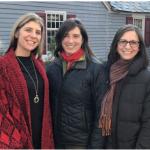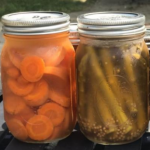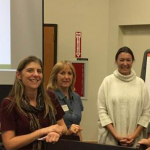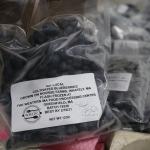Projects
In Progress
This project investigates new sustainable markets for New England seafood. Climate change challenges the socio-economic and environmental sustainability of New England's seafood industry. A warming Gulf of Maine compounds the complex puzzle of ecosystems, fish population dynamics, and catch limits for specific fisheries. Cascading effects on fishermen, seafood processors, markets, and restaurants provide a network of challenges that are difficult to disentangle. This multifaceted challenge highlights the need for collaborative, cross-disciplinary research to build sustainable new markets for seafood. This proposal brings together a team with diverse expertise in ecology, climate change adaptation, economics, stakeholder engagement and product development. We aim to support the fishing industry by investigating consumers’ seafood choices, sustainable fishing practices, and seafood products that contain lesser known yet abundant species.
The work will obtain new data to support ongoing pilot-work and support future proposals. Pilot data include:
- Fisherman’s perspectives on local and underutilized fish species and preservation methods,
- Consumer acceptability of new artisanal preserved fish products. Seed grant funds will be used to execute semi-structured interviews with New England fisherman, an online consumer survey, and a consumer sensory experiment. These funds will support the collaborative relationship between team members, building an interdisciplinary working group to pursue larger research funds.
Many small and medium producers and processors are affected by the recent implementation of the Food Safety Modernization Act (FSMA) regulation as the existing training does not address how to determine compliance and assumes that small and medium food processors (SMPs) begin training with a base level of food safety knowledge that many SMPs do not have. This project develops accessible, scale-appropriate, motivational mixed-media content to provide SMPs with the information they need to better understand how to implement Preventive Controls (PC) in their food businesses.
Completed
Lacto-fermented vegetables like sauerkraut, kimchi, and pickles are vegetables that are fermented with the presence of Lactic Acid Bacteria (LAB), which has seen a recent increased consumer demand due to its nutritional benefits. Fermentation, a traditional method of food preservation, presents new business opportunities for farmers and entrepreneurs to reduce waste and extend their selling season by offering value-added foods. However, concerns about food safety have emerged since enacting the Food Safety Modernization Act (FSMA) in 2011, mandating that processors meeting certain criteria establish a food safety plan.
Issues such as under-acidification and microbial contamination have led to outbreaks and recall, underscoring the existing microbial risks and the necessity for rigorous food safety controls. Despite this, there is a notable gap in research on microbial safety and the specific parameters of fermentation that mitigate pathogen survival. This project investigates the process parameters used in the lacto-fermentation of sauerkraut and their effect on the survival of pathogenic bacteria. The project aims to provide technical support to lacto-fermented vegetable processors aiding them in validating their food safety plans.
Small dairy farms face particular challenges as costs of production often exceed the set federal price for fluid milk. However, consumers have demonstrated a willingness to pay a premium for local dairy products, providing emerging market opportunities for small dairy farms. In Massachusetts, a significant barrier for dairy farmers hoping to capture this premium is lack of access to scale-appropriate fluid milk processing facilities. This project engagesstakeholders to identify operational feasibility, market potential, and barriers to access institutionalmarkets. Farmers will be engaged to assess the interest and potential supply of fluid milk to the processing facility. Activities including grant workshops and energy efficiency education will assist dairy farmers with maximizing their energy savings, allowing them to lower costs of production. Project activities will engage dairy farmers, academic researchers, agricultural trade and marketing organizations, farmer-owned cooperatives, and institutional buyers.
Producing shelf-stable acidified canned foods can help to add value to produce and introduce new markets, extend the agricultural season, and reduce waste. However, to successfully sell and distribute shelf-stable products, such as salsas, sauces, and/or acidified pickled products, processors must comply with the Code of Federal Regulations (21CFR114). This project providesopen-access to the development of 12 shelf-stable acidified canned food recipes that were converted into scale-appropriate product formulations that includes the scheduled process that identifies the appropriate food safety controls that were approved by a Process Authority.
The development of shared-use processing spaces has created new opportunities for small and emerging food businesses to develop and create new products. However, this audience has historically had challenges navigating food safety regulation and compliance, and there is a strong lack of educational materials and training to support them. Key concepts from the FDA recognized Food Safety Preventive Controls Alliance (FSPCA) Preventive Controls for Human Food curriculum will be modified to fit the target audience, and combined with other food safety and product development concepts to provide a focused, customized training to food entrepreneurs to aid in their understanding of critical food safety considerations from concept to commercialization. This program will contain input from stakeholders across the Northeast, to develop and implement a sustainable food safety training program, customized to small and emerging food businesses, to increase knowledge in food safety and enable entrepreneurial success in the marketplace.
https://ag.umass.edu/cafe/news/freezing-time-selling-local-produce-in-off-seasonThere is an opportunity for farmers to meet growing demand for local foods and increase farm profitability by entering a new market for retail sales of frozen value-added products. In particular, farmers could capitalize on opportunities provided by recent investments in regional food processing facilities by freezing produce for retail sales in winter. Like many new marketing opportunities, farmers do not have access to information they need to determine profitability in the new market: whether the returns from processing and selling retail frozen produce are greater than the costs or prhttps://ag.umass.edu/cafe/news/freezing-time-selling-local-produce-in-off-seasonoducing safe, high-quality food products that meet food safety regulations.
Farmers have indicated that they are interested in the market, but need better information on: processing/production costs; food safety/quality assurances; consumers’ demand/pricing; and packaging/marketing. Through this project we combine original research with existing supply-chain information provided by community partners to fill the information gap so farmers can determine whether this could be a profitable market for their operation. Specifically, through this work we aim to answer business questions such as: Can local and regional produce be profitably grown and processed (frozen) for off-season retail sales? Do consumers have higher willingness-to-pay for locally produced and processed frozen foods? And at what costs of producing safe, high-quality, locally grown, and processed frozen foods will not exceed consumers’ willingness-to-pay?




